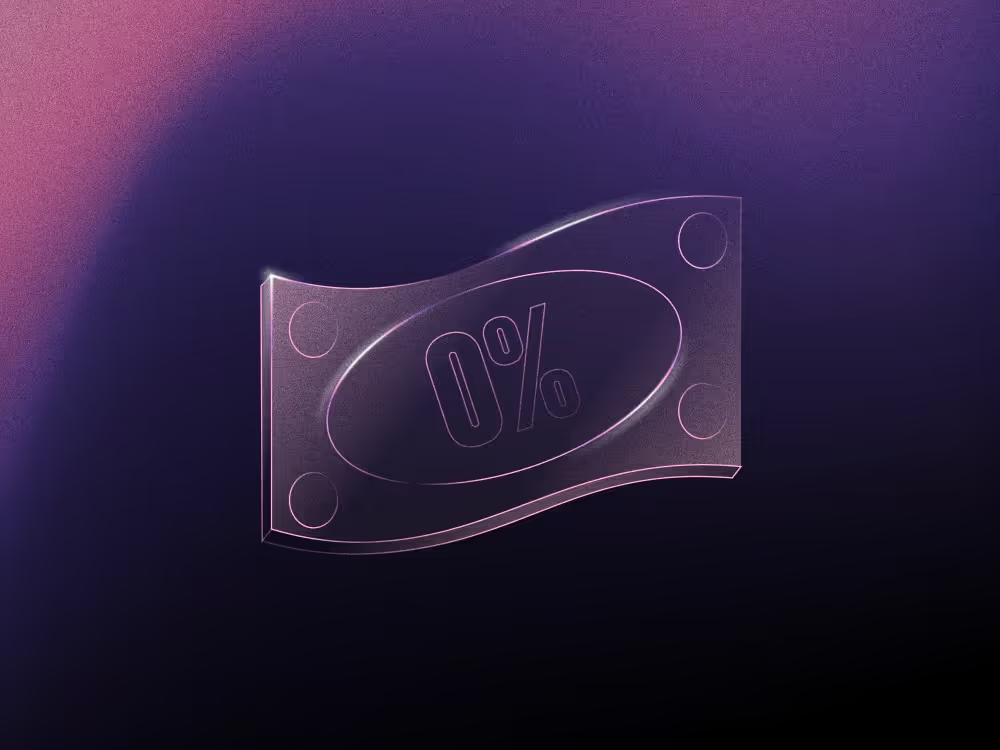UK investors can access commission-free trading easily, potentially slashing the cost of investing in the stock market.
But what does commission-free trading mean?
In this guide, we’ll give you a definition of commission-free trading, explain how it works, and help you to decide if you want to trade stocks without commission in the UK.
Before we start, it’s important to understand that the value of your investments can fall as well as rise, so you might get back less than you originally invested.
While commission-free trading means brokers don’t charge a fee, there can be other charges like foreign exchange fees or local taxes that apply.
What is commission-free trading?
When you buy and sell shares, you don’t go to the stock exchange yourself. A stockbroker does that for you. This is because stockbrokers are best set up for it in terms of regulation, tech, systems, etc.
‘Commission’ is the fee some stockbrokers in the UK (and elsewhere) charge for this service. The amount of commission depends on which broker, investment platform or trading app you invest with in the UK.
‘Commission-free’ trading or ‘commission-free investing’ just means the broker doesn’t charge you for the service of buying or selling shares. The benefit is that more of your money is spent on investing, rather than fees.
It’s worth noting that when you buy overseas shares in the UK, for example, US stocks or European shares, it’s likely you’ll also have to pay a foreign exchange charge. This is not a commission fee, but it does happen at the same point (i.e. when you buy or sell).
💡 What are foreign-exchange fees?
If you’re on holiday abroad and you buy lunch, you pay in that nation’s currency. In the same way, buying stocks in a foreign country means buying in that country’s local currency. If it’s a US stock, you pay in US dollars. If it’s a French stock, you pay in Euros.
Just as you pay a foreign exchange fee to change your British pounds into foreign currency when you are going on holiday, you will be charged a foreign exchange (FX) fee when you buy stocks from another country.
What does zero commission actually mean?
Zero commission trading is best explained with an example.
Let’s say you want to buy shares in a UK company and you’re deciding which broker or investment platform to go with. They are imaginatively named Broker A and Broker B.
Let’s say Broker A charges a commission of £10 per trade. Broker B offers commission-free trading.
Here’s an example of what zero commission looks like in action:
Commission is really just the price of a service, but it’s important to be aware of it because it has an immediate impact on your investment’s performance and returns.
Using the same example, your trade with Broker A costs £10 more, so you’re already behind a share bought with Broker B by 10%.
This comparison of competitor fees can help you compare the cost of commission and, in turn, share dealing across different platforms.
What are the advantages of buying shares commission-free?
Hopefully, by now the advantages of buying shares commission-free are clearer.
If you don’t have to pay any commission when you buy shares, more of your money goes towards investing. With no commissions when you sell shares, any gains go straight into your pocket as opposed to your broker's.
However, remember that investment gains aren’t guaranteed. All investments can fall as well as rise in value.
How do commission-free brokers make money?
Commission-free trading is on the rise in the UK, but it’s still not offered by every broker. So, what allows some stockbrokers to offer commission-free trading?
The first big factor is cost.
Stockbrokers come in all shapes, sizes and ages. As in many other sectors, newer technology-led businesses often run a lower-cost business model than more traditional competitors.
The other key aspect is how the broker charges its clients. Even without commission fees, stockbrokers are still making money somewhere. For example, they might offer commission-free trades and a free entry-level account, but charge for more sophisticated services.
How does Freetrade make money?
When you see that a platform charges zero commission, you might suspect a catch. After all, every business needs to make money. In the interest of openness, here is a quick overview of how Freetrade makes money and can charge zero commission fees.
Freetrade’s business model falls into the freemium camp.
There’s a level of service we don’t charge you for, like having a general investment account, stocks and shares ISA , and/or Self Invested Personal Pension (SIPP) with us as part of our Basic plan. However, there are some further benefits and services we provide.
Here’s a breakdown of things we currently charge for:
- Plan fees: Subscription fees for our Standard plan (£4.99/mo) and Plus plan (£9.99/mo).
- Foreign exchange (FX) fees: We charge FX fees when you buy or sell shares priced in USD or EUR.
- Interest: Freetrade earns a small amount of interest on customers’ cash.
You can see more info on our pricing here.
What to look for in a commission-free trading app?
When it comes to choosing a commission-free trading app or any investment provider for that matter, we think it’s best to think in terms of two things: features and fees.
For features, here are some useful questions to think about:
- How experienced an investor are you?
- Which investments would you like to be able to invest in? Does the platform offer stocks, overseas shares, ETFs, investment trusts and more?
- Which accounts would you like to access? GIA, ISA or SIPP?
- Do you want access to personal finance tips and investment research?
- Would you rather access your investments via an app, web or both?
- Would you like to be able to speak to a customer service team?
When it comes to fees, it’s important to understand how you’ll be charged.
Here are the fees to understand:
- Platform charges: How much does the platform charge to hold your investments?
- Trading commission: Is it zero commission for all trades or a specific quantity?
- Foreign exchange fees: How much are you charged to buy overseas investments?
- Ongoing charges: How much are you charged for products like ETFs, investment trusts and funds?
- Exit charges: Will you be charged if you choose to leave the platform?
Keep a particular lookout for any percentage account fees. If your investment pot grows your account fees will too. This may impact your investment’s performance.
Zero-commission investing - FAQs
Is commission-free investing good for beginner investors?
Commission-free investing can be a good option for all types of investors, beginner, experienced or in between.
The key benefit of commission-free investing is that more of your money goes towards your investments instead of commissions.
If you are a beginner and have little money to begin investing with, every penny can make a difference. Fixed fees charged by some brokers will be particularly hard to stomach, so commission-free trading could help you hold on to more of your money.
Which stocks can I buy commission-free?
This will vary platform by platform.
With Freetrade, all investments are commission-free, whether that’s US, UK or European stocks, fractional shares, ETFs, investment trusts or REITs.
Is there a limit to the stocks I can buy commission-free?
This will vary by platform.
However, when you buy and sell stocks commission-free with Freetrade, there is no limit. Every trade is commission-free.
What other fees apply for Freetrade?
Buying and selling shares is commission-free, but there are two other charges to be aware of.
- Plan fees: While Freetrade’s Basic plan is free, the Standard and Plus plans require a monthly fee.
- FX fees: When you buy overseas shares, you will pay a small foreign exchange fee. This FX fee is 0.99% on our Basic plan, 0.59% on our Standard plan, and 0.39% on our Plus plan.
See our full pricing table for more information.
What is the cheapest way to buy shares?
It is possible to buy shares without paying any fees at all. Use a free account on a no-commission platform to buy a UK stock. If you buy a stock like this, you will avoid platform fees, commission fees and FX fees.
For example, you can use Freetrade’s Basic plan to do this.
Other charges apply. The value of your investments can go down as well as up and you may get back less than you invest. Always do your own research. Fluctuations in foreign exchange rates may affect investments denominated in currencies other than GBP and the amount you receive back.






.jpg)
.avif)





